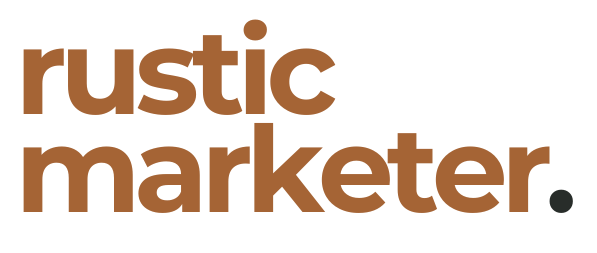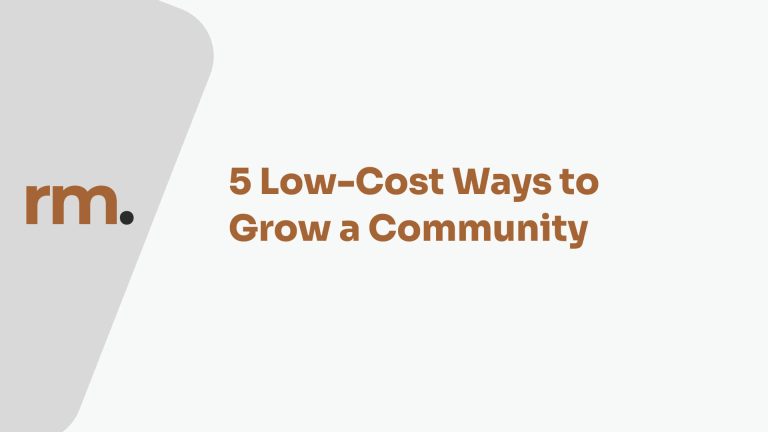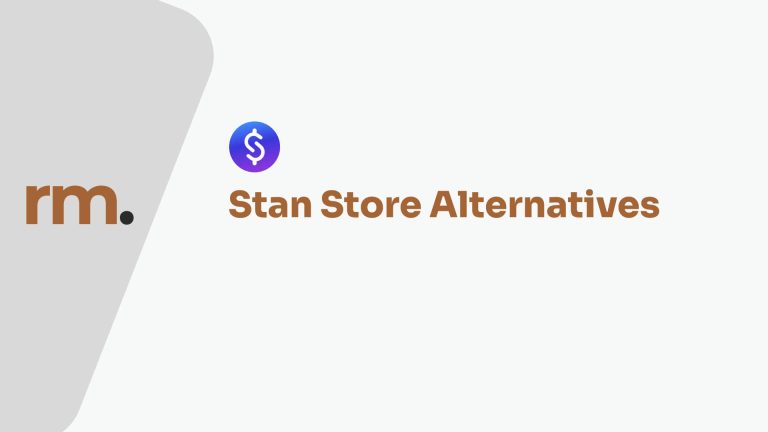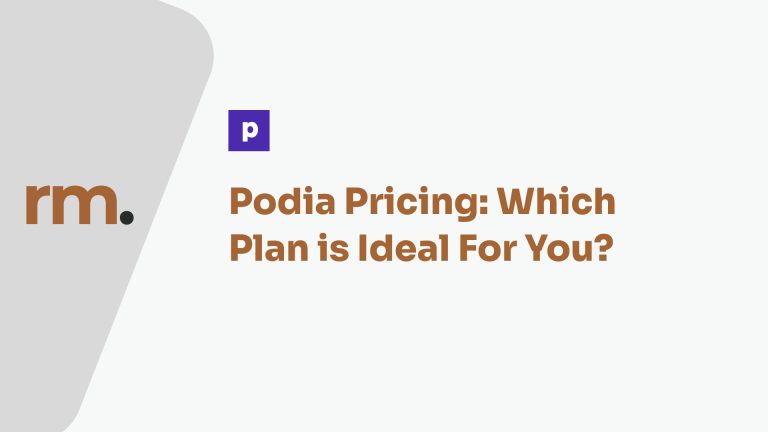Where once it was incredibly difficult to start an online business, today it’s a relatively simple process. No longer does your business need to be a physical location. In fact, most businesses can now start online, at a very low cost. But not many are aware of the right approach to get started.
It’s very likely that you might be confused on how to get started. Do you start developing the product immediately? Do you build a website right away? Or do you research your market needs?
These are some possible questions you might ask prior to starting an online business. Yes it can seem overwhelming, but let’s break it down to simple steps on how you could navigate through this process.
Choose the audience you want to target
As you build your business, it’s important to make sure that your offerings really speak to the customer you’re building it for. This also makes the rest of the steps so much easier. Which is why I brought this to the top. Knowing your target market will help you easily identify their problems, understand their needs and thereby offer a solution that they are willing to pay for.
At this point, it’s important to choose a niche that you’re most comfortable working with. Once you’ve identified the audience, you’d need to identify their biggest pain points and try to address them.
Here’s an example:
- Target market: Local tradesmen
- Problem: No predictability in terms of revenue making it difficult to plan the required manpower.
- Solution: A service to help local tradesmen businesses generate leads through digital advertising.
That was just one simple example. However, there are many different ways you could go about to find out their needs:
- Research on what competitors are doing: Depending on the type of business, really try to figure out what needs your competitors are fulfilling. Look at how they advertise and how their product or service is described on their website. This will help give you a picture of their customer base and what they think their customers need.
- Research on the market: This will help you you identify where to invest your time and money. It puts you in touch with your potential audience and reveals what they’re looking for. Watch out for what they are currently complaining about – maybe read through Facebook groups and forums such as Quora to identify this. This will help you differentiate from competitors, or even help you develop a new type of product or service.
- Survey your existing/potential customers: Your customers are the best resource you have. With customer surveys, you can get to the heart of their issues—and create an experience that meets (and even exceeds!) their expectations.
Choose your online business type
The business type that you choose largely depends on the business idea and your target audience. By this time, you’d have already done your research (we hope!) and you’ll likely be able to identify which of the online business types will be most suited for you.
What’s important to note here is that you could mix and match multiple business models to operate your online business. The choice is entirely up to you.
But here are some of the factors you could consider when choosing an online business type:
- Demography of the target audience: this would largely determine how you will be delivering the product/service to your customers which in turn can affect your choice of the business type. For eg: If you are considering a subscription revenue model, you’ll need to find out if customers are willing to engage with your product on a recurring basis.
- The type of product/service on offer: The business model that you choose will also be largely determined by type of product/service you are offering to the market. Eg: if you are interested in dealing with physical products, dropshipping could be a good business model for you.
- Earning potential: The way you monetise your online business largely depends on the type of online business model that you choose. For eg: If you have an online course, your potential revenue streams could be through sale of courses, affiliate commissions from products that you recommend, coaching and consulting services etc.
- Passive income: Your choice of the business type can also depend on the level on commitment you want to place in running your online business. If you want a more passive income, you could opt for more scalable business models like affiliate marketing and digital products – which have greater potential for passive income compared to dropshipping or SaaS businesses.
Create/develop your offering (i.e. product or service)
Your business is only as good as the product/service you offer. Your online business is built on sales. To make the sale, you need to create a product or service that excites your customers and sell it in the right way.
The method to going about creating or developing the product varies across different businesses. It also largely depends on the online business type that you chose in the previous step.
If you are creating a dropshipping business, you would need to create an eCommerce website to allow visitors browse the products and place orders seamlessly. Alternatively, if you are creating an informational product such as an online course or an eBook, you would need professional editors to ensure they are up to par.
Other examples including developing a top-quality web app or mobile application for your SaaS business, or researching the affiliate opportunities within your niche if you’re starting up an affiliate business.
Establish a brand for your online business
Creating a brand is an important first step to start an online business. It allows you to showcase your values and personality. Your brand is what’s going to help you stand out, break through the noise, and grab your ideal customer’s attention—so it’s important to take the time to put some serious thought into what kind of brand you’re trying to build.
Once you’ve identified the direction you’d like to take, it’s time to address the key elements of your brand for your online business:
- domain name
- logo
- brand guidelines (with fonts and color schemes) and
- a website
Having these in place prior to your launch is important so you can communicate the right message to your audience.
Build your online sales channel
Online sales channels include 3rd party platforms, marketplaces and of course your own website.
Notice how I’ve not specifically mentioned that you build a website right away. This is because, it can depend on the business model that you choose in Step 2.
For instance, if you are selling a digital product such as a WordPress theme, you could list them on a marketplace like ThemeForest as they have a large audience that visit the website. For printables such as planner templates, create a store on Etsy. For digital products, you could use Gumroad for eBooks, SendOwl for videos, and Udemy for online courses.
Similarly, if you want to start a dropshipping or affiliate marketing business, it would make more sense to create your own website on WordPress or platforms such as Shopify.
Either way, whatever the sales channel that you use, it should be easily scalable and cost effective. Do take some time to research on the pros and cons before committing to a particular sales channel. Also keep in mind that you can always mix and match to suit your needs.
Register your business as a legal entity
To make sure you’re not breaking any laws or regulations, it’s a good idea to do some research on local business registration requirements as your business grows. Since the laws by state and county often differ, it’s worth your while to look up the business legal requirements for your area. Below are some legal factors you need to consider when you start an online business:
- Business structure: You can register as an LLC or sole proprietor for your online business. These types of businesses are the easiest to set up and maintain, but it’s important that you seek professional help to understand the tax implications of each as they may vary depending on where you are based.
- Permits and licenses: Just like anything else you do in life, you’ll need a license to operate your business. The exact process will vary depending on where you live, so contact your local government department for more information.
- Tax structures: Your business may have to pay taxes if it’s organised as either a sole proprietorship, a partnership, or a corporation. You need to determine whether your business has separate tax obligations based upon the form of organisation that you choose and whether your business income is taxable. Once again, contact your local tax accountant for further information.
- Business bank account: This is important as you’ll need them to setup payment gateways such as PayPal and Stripe. This way, you can seamlessly integrate to your sales channels and start accepting money from your customers. Having a separate business bank account will also help keep your personal finances and your business finances separate.
Once again, all of this can largely vary on where you are based. If you need more information and have more questions on this matter, check out this article.
Set up your operational processes
To run a successful online business, you need to have the logistical strategy in place before you launch. This can largely vary based on your business model, but it’s important that you have a standard operating procedure (SOP) in place so it’s easy to refer to.
For eCommerce/dropshipping business, you would need to manage the communications with the supplier, sort out shipping, and ensure you are able to process the orders as seamlessly as possible.
For digital products business, you need make sure that the product is up to date and is of high quality, customer communications are handled and that the online platforms that sell the products are free of bugs/errors.
For affiliate businesses authority sites, you need to constantly ensure your reviews are up to date, that you update relevant content relating to your niche, engage with the audience and ensure the website is up and running without any glitches.
Likewise, you will have a set of processes to ensure your online business is running smoothly to ensure that the income you generate is largely passive and requires little/no involvement on your end.
Develop a marketing strategy
As for the marketing strategy, it’s going to be unique to your business model. But in general, you could use a mix of the following methods and test which ones work best for you:
- Advertisements: Use platforms like Google AdWords, Youtube Ads, Facebook Ads etc. to build awareness about your product. The choice very much depends on where your audience hangs out the most. You can target relevant searches and improve your brand recognition with this self-service platform. With Facebook advertising, you can target specific groups of customers with ease using their razor-sharp audience targeting tools.
- Influencer marketing: Whether it’s through Instagram or TikTok, influencer marketing is a great marketing channel that you could explore. You could look for influencers in your niche who has a similar audience and offer your product for free in return for exposure or any form of monetary exchange.
- Email marketing: Start building your email list right from the get go! This is a great way to stay in touch with your customers, drive sales, and build awareness of your brand. It can also help you collect data you can use to make strategic decisions about potential sales leads. The more email contacts you have, the more opportunities you have to create new email content and promotions for your email list.
- Social Media marketing: Use social media to create a presence where your target audience spends time online. Post interesting content regularly on the platforms your customers use most often. Use them to have conversations with your customers about relevant topics.
- Affiliations & partnerships: If you have other businesses that have similar audience as yours but are offering a different product/service, you could join hands to collaboratively promote your products as a bundle. For example, if you are selling a software that helps local businesses book more leads, you could engage with web designer who builds websites for similar local businesses and offer a bundled package.
Final thoughts
Even though there are an infinite number of ways to grow your business online, the most important thing to remember is that you can start right now. This step-by-step guide to start an online business only serves you as a guide. All that’s left to do is start building your empire with everything you’ve learned.
Of course, you are going to stumble and face several challenges and that’s all part and parcel of any business venture. The point is to just get started! Got any questions? Hit me up on Twitter!



